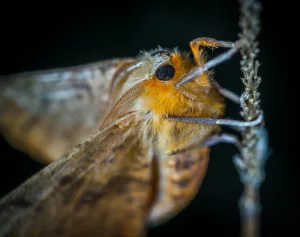Wolves are apex predators that play a crucial role in maintaining the delicate balance of ecosystems. Their presence can have far-reaching effects on the populations of other species, as well as the overall health of an ecosystem. When wolves are reintroduced into a park or natural area, their predatory behavior can have significant impacts on the structure and dynamics of the ecosystem. These majestic predators are not just mere hunters but rather key players in the intricate web of life. The presence of wolves in an ecosystem is a testament to the interconnectedness of nature. These predators are not only vital for controlling prey populations but also for fostering a more diverse and resilient environmental landscape. The ripple effects of their predation touch upon various aspects of the ecosystem, from vegetation growth to the survival of other animal species, and even to the quality of water bodies within these natural spaces.
Effects on Prey Populations
One of the most noticeable effects of wolves on an ecosystem is their impact on prey populations. By preying on herbivores such as deer and elk, wolves can control their numbers and prevent overgrazing of vegetation. This, in turn, can lead to a cascade of effects on plant communities, as well as on other species that rely on those plants for food and habitat. The regulation of herbivore populations by wolves promotes biodiversity by preventing any one species from dominating an ecosystem.
The Role of Wolves in Vegetation Management
Wolves, by preying on herbivores, play an indirect yet essential role in vegetation management. In areas where herbivore populations are unchecked, overgrazing becomes a significant issue, leading to soil erosion, loss of plant species, and poor water quality due to sedimentation. For example, in certain areas of North America, the absence of wolves has allowed deer populations to explode, resulting in the decimation of young saplings and the degradation of forest understories.
This overgrazing impacts not just the flora but also the fauna that depends on these plants for survival. Ground-nesting birds, for example, lose critical habitat, and insects that thrive on specific plants find themselves without a food source. By keeping herbivore numbers in check, wolves help maintain a balanced and thriving plant community, which in turn supports a wide range of animal species.
Case Study: Yellowstone National Park
The reintroduction of wolves to Yellowstone National Park is a striking example of how these predators can transform an ecosystem. Before their return in 1995, the park’s elk population had grown excessively, leading to overgrazing and the degradation of vegetation along riverbanks. This overgrazing negatively impacted other species, such as beavers and songbirds, who depended on healthy plant life for survival.
With the return of wolves, elk numbers declined, allowing willow and aspen trees to recover. Beavers returned, building dams that created habitats for fish and waterfowl. This shows how wolves, by simply fulfilling their role as predators, can set off a chain reaction that revitalizes entire ecosystems.
The Yellowstone example also demonstrates the concept of ecological engineers. Beavers, once supported by healthier vegetation, play a crucial role in creating wetlands that enhance biodiversity. Their dams slow water flow, reduce erosion, and create ponds that serve as habitats for a myriad of organisms. All these changes can be traced back to the presence of wolves, illustrating their integral role in maintaining ecosystem health.
Trophic Cascades and Ecosystem Dynamics
Wolves are known to trigger trophic cascades, which are indirect effects that ripple through an ecosystem. For example, when wolves reduce the numbers of herbivores, the vegetation can recover, providing more food and habitat for smaller mammals, birds, and insects. This can ultimately lead to a more diverse and balanced ecosystem, with a greater variety of species coexisting harmoniously. The intricate web of interactions within ecosystems is highlighted by the trophic cascades initiated by wolves, showcasing their importance in maintaining ecological balance.
Impact on Scavenger Species
Beyond their role in regulating prey populations, wolves also benefit scavenger species. When wolves make a kill, they leave behind carcasses that provide food for a host of other animals, including bears, eagles, and numerous insect species. This scavenging opportunity supports a wider array of species and helps maintain a healthy nutrient cycle within the ecosystem.
The availability of carcasses is particularly important during harsh winter months when food is scarce. This food source allows scavenger species to survive and thrive, contributing to the overall biodiversity of the ecosystem. In turn, a diverse scavenger population can influence the spread of nutrients throughout the ecosystem, promoting plant growth and supporting herbivore populations in a balanced manner.
Biodiversity and Resilience
In addition to supporting specific species, the presence of wolves can contribute to overall ecosystem resilience. Diverse ecosystems are better able to withstand environmental changes and pressures, such as climate change or invasive species. By promoting biodiversity through their predatory activities, wolves help ensure that ecosystems remain robust and adaptable.
Resilience is a critical aspect of ecosystem health. It refers to the ability of an ecosystem to recover from disturbances, whether natural or human-induced. Wolves, by maintaining biodiversity, enhance this resilience. A diverse array of species can fill various ecological niches, ensuring that the ecosystem can continue to function even when faced with challenges. This adaptability is crucial in a world where climate change and human activity are constantly altering natural landscapes.
Human-Wolf Interactions
Balancing Conservation and Concerns
While the ecological benefits of wolves are substantial, their presence can also lead to conflicts with human interests, particularly in areas where livestock farming is prevalent. Wolves may occasionally prey on livestock, leading to economic losses for farmers and ranchers. This has created a need for balanced conservation strategies that address the concerns of local communities while protecting wolf populations.
Strategies for Coexistence
Several strategies can help mitigate conflicts between wolves and humans:
- Livestock Guardians: The use of guardian animals, such as dogs or llamas, can deter wolves from attacking livestock. These animals are trained to protect herds and can be highly effective in reducing predation.
- Fencing and Enclosures: Improved fencing and secure enclosures can protect livestock from predators. Electric fencing, for example, has been shown to be a deterrent to wolves, reducing the likelihood of attacks.
- Compensation Programs: Some regions have implemented compensation programs to reimburse farmers for livestock losses attributed to wolves, reducing economic pressure. These programs often require verification of wolf predation and are designed to encourage tolerance of wolves by offsetting financial losses.
- Community Engagement: Educating communities about the ecological role of wolves and involving them in conservation decisions can foster coexistence. Workshops, public meetings, and educational materials can help dispel myths about wolves and highlight their importance in ecosystem health.
Case Studies of Successful Coexistence
In regions such as the French Alps, coexistence strategies have been implemented with notable success. The use of livestock guardian dogs has become a common practice, significantly reducing the instances of wolf predation. Additionally, compensation schemes have been effectively integrated, providing financial relief to affected farmers and fostering a more favorable attitude toward wolves.
In the United States, the Defenders of Wildlife organization has pioneered compensation programs that have been instrumental in reducing tensions between ranchers and conservationists. By providing timely compensation and engaging local stakeholders in decision-making processes, these programs have built trust and cooperation in communities affected by wolf reintroduction.
Lessons from Ecosystem Restoration
Adaptive Management
The reintroduction of wolves to ecosystems like Yellowstone has taught us valuable lessons about adaptive management. This approach involves monitoring ecosystems, assessing outcomes, and making adjustments to management strategies based on observed results. Adaptive management recognizes that ecosystems are dynamic and that management practices must evolve in response to new information and changing conditions.
Long-term Monitoring
Long-term ecological monitoring is crucial for understanding the impacts of wolf reintroduction. By collecting data over extended periods, scientists can discern trends and evaluate the broader ecological consequences of predator reintroduction. This data is essential for refining conservation strategies and ensuring that they achieve desired outcomes.
Monitoring efforts in Yellowstone have revealed the complexity of ecological interactions. Researchers have documented changes in vegetation, shifts in animal populations, and alterations in physical landscapes, all linked to wolf activity. These findings underscore the importance of ongoing research in guiding conservation efforts and adapting management practices to meet evolving ecological needs.
The Broader Implications for Conservation
Keystone Species
Wolves are often referred to as a “keystone species” due to their disproportionate impact on the ecosystems they inhabit. The concept of keystone species highlights the critical roles certain organisms play in maintaining the structure of ecological communities. Protecting keystone species like wolves is fundamental to preserving biodiversity and ecosystem health.
The presence of wolves influences a wide range of ecological processes, from regulating prey populations to facilitating nutrient cycling. This keystone role underscores the importance of conserving top predators as a means of safeguarding entire ecosystems.
Rewilding Initiatives
The success of wolf reintroduction in places like Yellowstone has inspired rewilding initiatives worldwide. Rewilding involves restoring ecosystems by reintroducing native species and allowing natural processes to take place. This approach aims to restore the balance of nature, enhance biodiversity, and mitigate the effects of climate change.
Rewilding projects have taken root in various parts of the world, from the Scottish Highlands to the Iberian Peninsula. These efforts seek to reestablish ecological connections, allowing species to thrive in their natural habitats. By focusing on restoring top predators like wolves, rewilding initiatives aim to create self-sustaining ecosystems that are resilient to environmental changes.
Challenges and Considerations
Ethical and Ecological Concerns
While reintroducing wolves can yield positive ecological outcomes, it also raises ethical and ecological questions. The impact on local communities, cultural values, and existing wildlife must be carefully considered. Conservationists must balance the needs of ecosystems with the rights and concerns of human populations.
Climate Change and Future Challenges
Climate change presents new challenges for wolf populations and the ecosystems they inhabit. As temperatures rise and weather patterns shift, the distribution of both prey and predator species may change. Conservation strategies must be adaptable to address these evolving conditions and ensure the continued survival of wolves and the ecosystems they support.
Navigating Human-Wildlife Conflicts
As human populations expand and encroach upon natural habitats, conflicts between humans and wildlife are likely to increase. Urban development, agricultural expansion, and infrastructure projects can fragment habitats and disrupt ecological processes. Conservation efforts must navigate these challenges by promoting harmonious coexistence and integrating wildlife corridors to facilitate movement and gene flow among populations.
The Role of Technology in Conservation
Advancements in technology offer new tools for conservationists working to protect wolves and their ecosystems. Remote sensing, satellite imagery, and GPS tracking provide valuable data on wolf movements, habitat use, and population dynamics. These technologies enable researchers to make informed decisions and develop targeted conservation strategies.
Moreover, innovations in non-invasive monitoring, such as camera traps and acoustic sensors, allow scientists to study wolf behavior and interactions without disturbing their natural activities. These tools contribute to a more comprehensive understanding of wolf ecology, informing conservation efforts and enhancing our ability to protect these vital predators.
The reintroduction of wolves into ecosystems has proven to be a powerful tool for ecological restoration and biodiversity conservation. By regulating prey populations, triggering trophic cascades, and supporting diverse species, wolves play an indispensable role in maintaining the health and balance of ecosystems. While challenges remain, the lessons learned from wolf reintroduction projects offer valuable insights for the future of conservation. Through careful management and community engagement, we can find ways to coexist with these remarkable creatures and harness their ecological benefits for generations to come.



